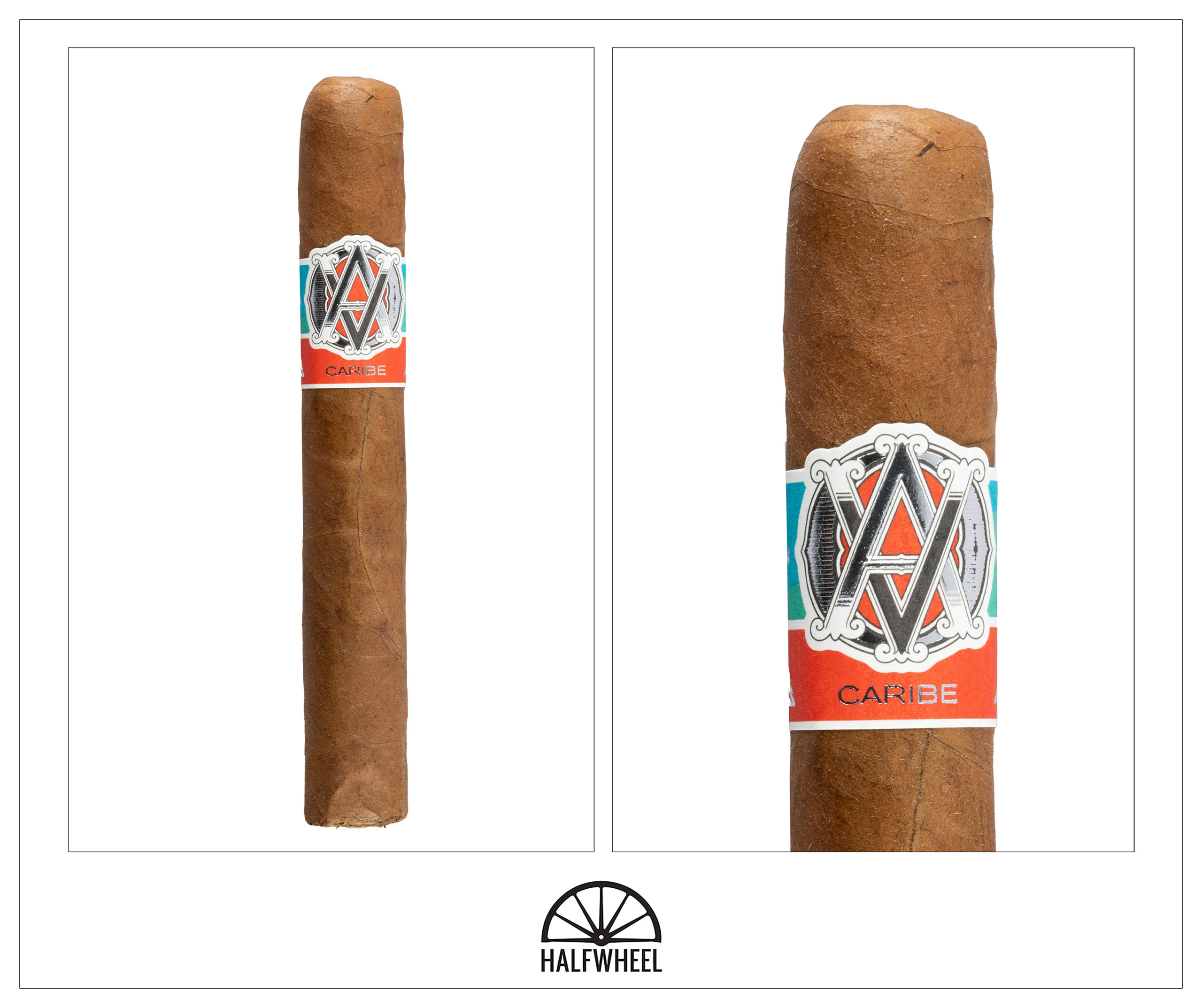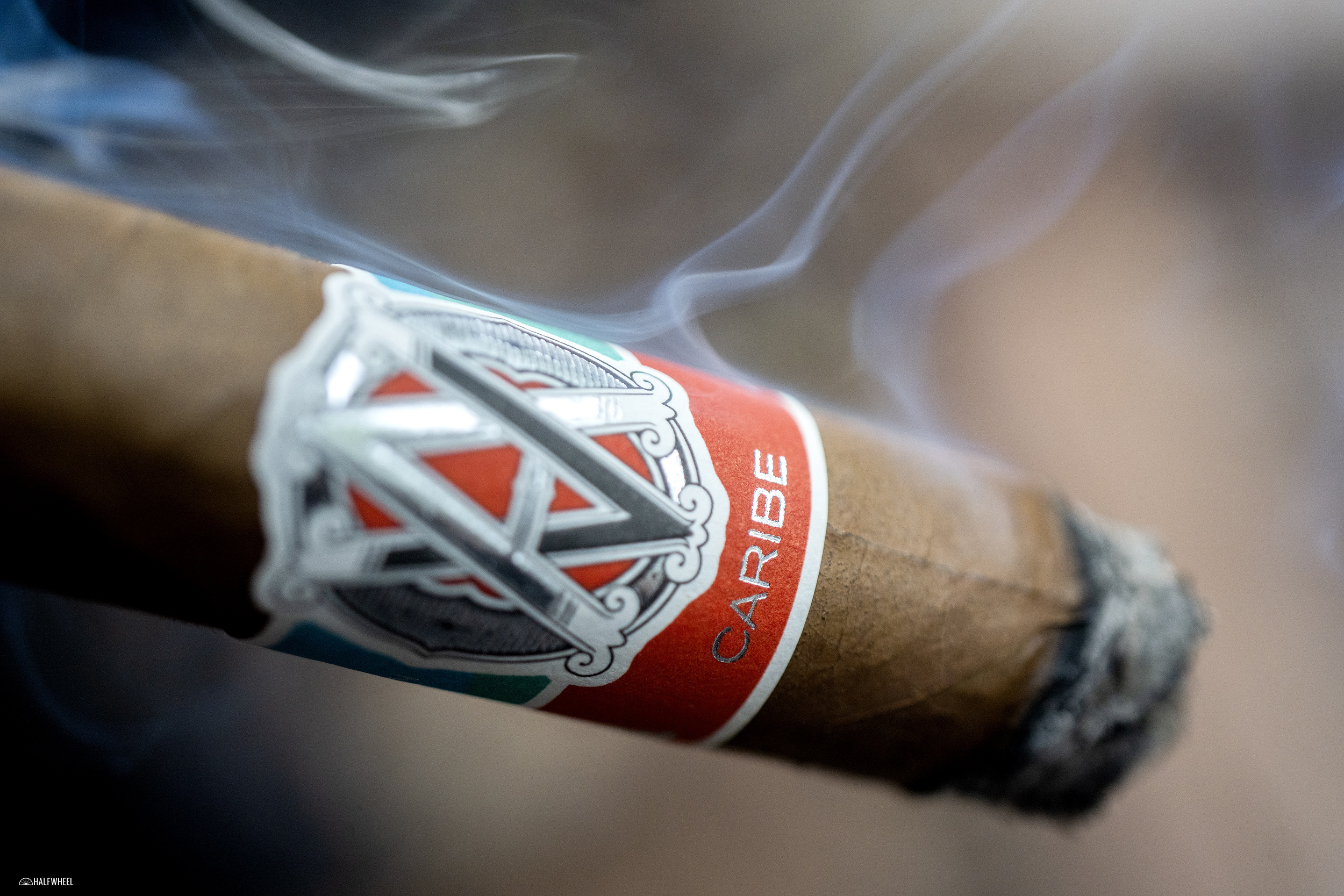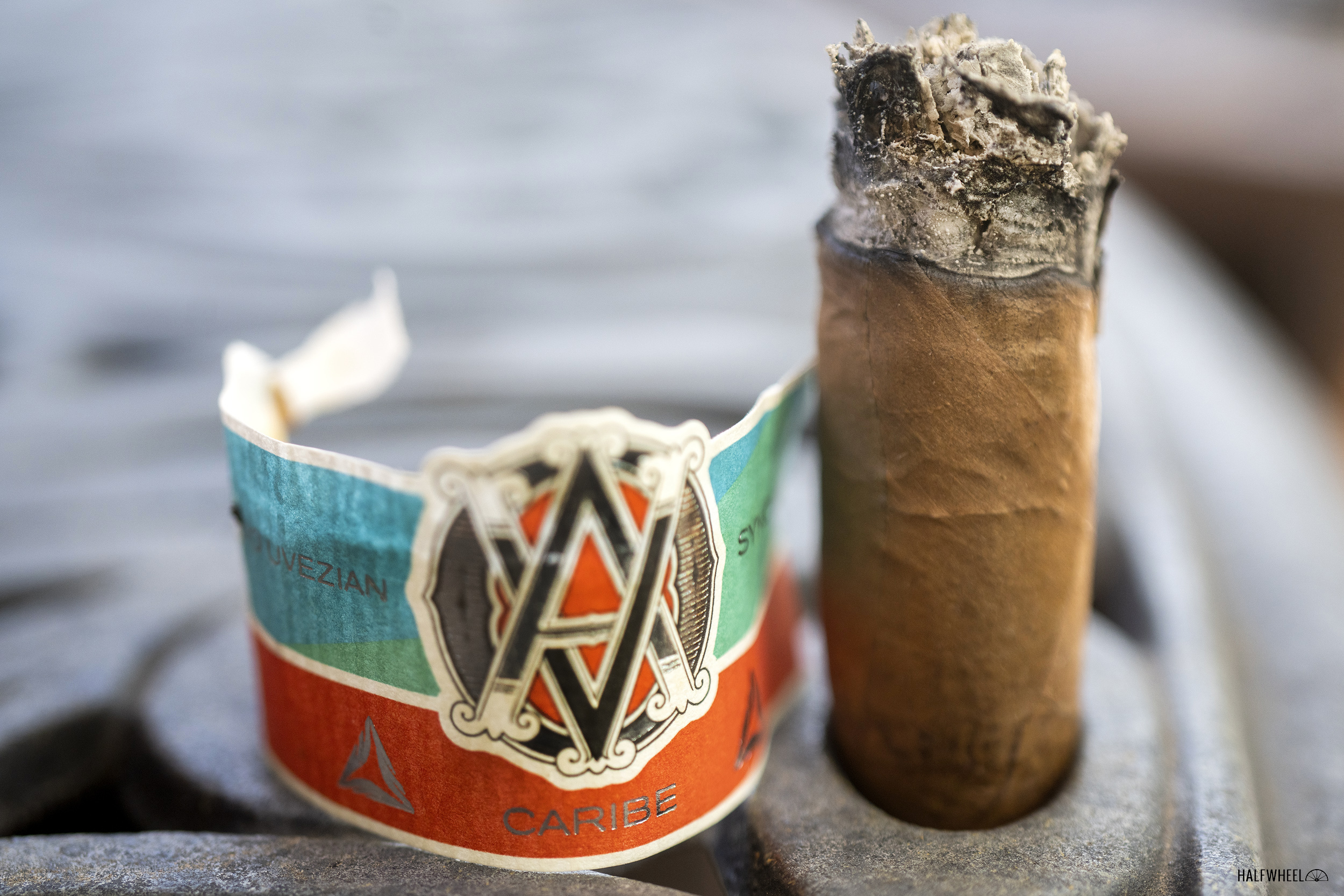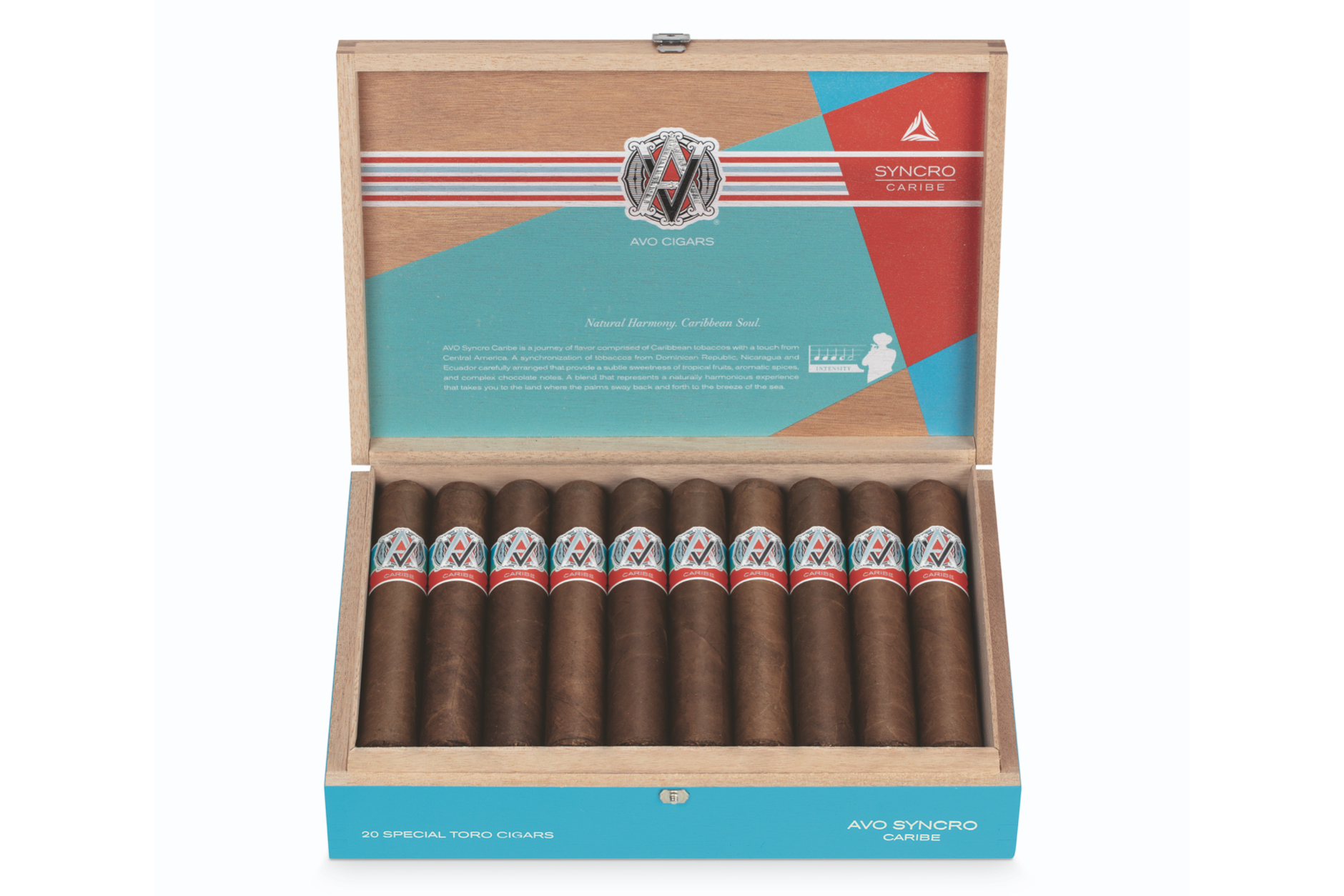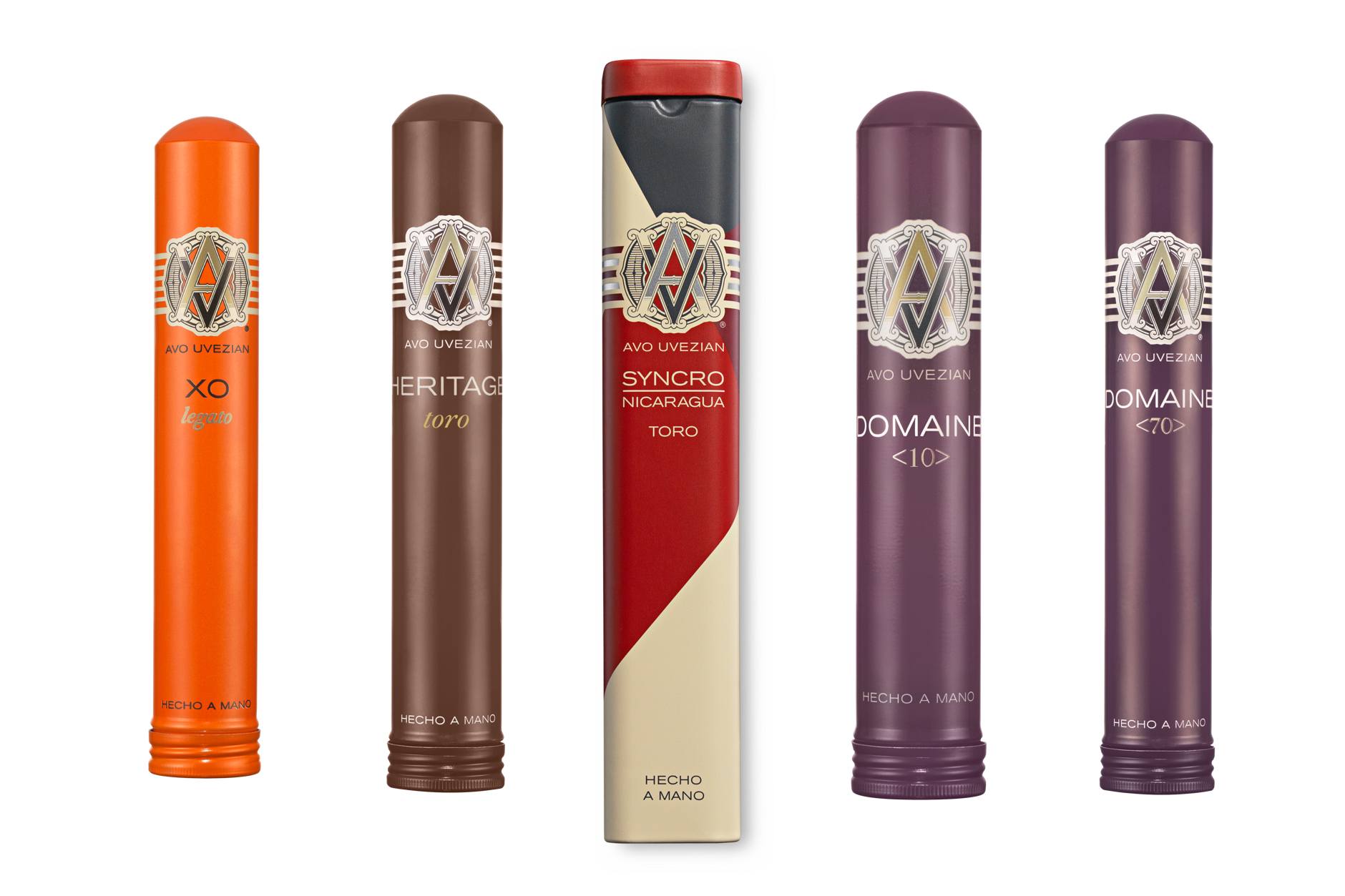In 2015, Davidoff of Geneva USA kicked off a rebranding of the entire AVO portfolio that involved discontinuing a number of existing lines as well as introducing new products. One of those new products was the AVO Syncro Nicaragua, a regular production release that featured an aggressive box-pressed cigar packaged in much more colorful and modern boxes than the brand was known for.
New extensions of the AVO Syncro line followed in 2016 and 2017—with the AVO Syncro Nicaragua Fogata and AVO Syncro South America Ritmo respectively—though there wasn’t a new AVO Syncro for nearly four years.
That changed in August when Davidoff started shipping the fourth line in the AVO Syncro series. The AVO Syncro Caribe—which translates to Caribbean from Spanish—is made up of a Dominican wrapper covering an Ecuadorian binder as well as filler tobaccos grown in the Dominican Republic and Nicaragua. In addition, the cigars are made using “natural distribution,” which the company says the “ratios of tobaccos from each priming are matched in the blend in all vitolas.”
“The AVO Syncro series is centered around the concept of tobacco synchronization,” said Lana Fraser, director of marketing and retail at Davidoff of Geneva USA, in a press release. “This is an incorporation of the diversity, complexity and compatibility of selected tobaccos from varying regions. With the newest addition of the AVO Syncro Caribe, we strive to deliver new frontiers in cigar experiences.”
There are currently three different vitolas of the AVO Syncro Caribe, all of which are packaged in boxes of 20:
- AVO Syncro Caribe Robusto (5 x 50) — $10.90 (Box of 20, $218)
- AVO Syncro Caribe Toro (6 x 52) — $11.90 (Box of 20, $238)
- AVO Syncro Caribe Special Toro (6 x 60) — $12.90 (Box of 20, $258)
- Cigar Reviewed: AVO Syncro Caribe Toro
- Country of Origin: Dominican Republic
- Factory: O.K. Cigars
- Wrapper: Dominican Republic
- Binder: Ecuador
- Filler: Dominican Republic & Nicaragua
- Length: 6 Inches
- Ring Gauge: 52
- Vitola: Toro
- MSRP: $11.90 (Box of 20, $238)
- Release Date: August 2021
- Number of Cigars Released: Regular Production
- Number of Cigars Smoked For Review: 3
Although the band on the AVO Syncro Caribe Toro is quite colorful, the wrapper of the cigar underneath is a fairly standard milk chocolate brown shade, albeit with very few obvious veins and a touch of oil. The cigar is slightly spongy when squeezed and there are no soft spots that I can find. The aroma from the wrapper brings a combination of cocoa nibs, generic nuts, earth, manure and leather while the foot features notes of peanuts, cocoa nibs, hay, potato chips and cedar. Finally, the cold draw brings flavors of strong dark chocolate, salted peanut shells, creamy cedar, earth, mushrooms and white pepper.
The first flavor I taste after lighting the foot of the AVO Syncro Caribe Toro is a strong barnyard note. It is quickly replaced by a much more enjoyable peanut shell flavor that is seemingly pulled directly from the cold draw mixed with creamy cedar, both of which easily take the top spots in the profile. Secondary notes of leather tack, earth, espresso beans, popcorn and dark chocolate flit in and out, while there is also a touch of spice that seems content to stick around for a while. The retrohale features a great amount of both white pepper and honey sweetness, both of which are strong enough to positively affect the profile but neither of which are getting any stronger. In terms of construction, the draw features just the right amount of resistance after a straight cut, while the burn is close to razor sharp and the smoke production is both thick and copious. Flavor is medium while both the body and strength end the first third at a point between mild and medium.
While the first half of the second third of the Syncro Caribe features the same main flavors of creamy cedar and peanut shells, both of them change to notes of anise and leather tack just after the halfway point. Other flavors of creamy cedar, hay, generic nuts, coffee grounds and slight cinnamon fill out the rest of the profile, and while there is still plenty of white pepper on the retrohale the honey sweetness also changes after the halfway point, this time to a distinct maple syrup flavor. There is not much change with the construction—meaning both the draw and burn continue to give me no issues whatsoever—but the smoke production has actually increased a bit. Flavor increases to a bit more than medium and is still increasing, but both the body and strength stay put between mild and medium as the second third comes to an end.
Anise and leather continue to top the profile during the final third of the AVO, followed by additional notes of creamy cedar, rich tobacco, nuts, popcorn, coffee beans and a touch of lemongrass. Both the white pepper and maple syrup sweetness continue to dominate the retrohale, but the mild spice that was present on my tongue for the previous two thirds finally disappears, never to return. While the draw continues to impress, the burn gets into enough trouble that I do a quick touch-up—although it is fine after that—and the smoke production has decreased a bit in volume after its high point in the second third. Flavor ends up being medium-full and the body remains between mild and medium, but the strength manages to hit a solid medium by the time the cigar comes to an end.
Final Notes
- I do find it odd that a cigar which is supposed to be “journey of flavor comprised of Caribbean tobaccos” includes tobacco from only one Caribbean country—out of three countries total—specifically, the Dominican Republic. While Davidoff isn’t known for using tobaccos from other Caribbean countries, there are cigars made with tobaccos from Haiti and Jamaica; and of course Cuba.
- Of course, this is not the first time this has happened: Altadis USA’s Trinidad Espiritu is meant to embody “a vintage presentation of Caribbean culture” that is made up of all Nicaraguan tobacco.
- There have been a number of other cigars that incorporate the word Caribe in their names, including Ashton’s La Aroma del Caribe—which was actually the company’s core La Aroma de Cuba line sold in Europe under a different name—and Saints of Havana Caribe-Select from JAXSIN Cigar Co.
- Overall construction was absolutely fantastic, with excellent draws after straight cuts and only two touchups needed on two different cigars.
- Davidoff of Geneva USA advertises on halfwheel.
- The cigars smoked for this review were purchased by halfwheel.
- Final smoking time for all three samples averaged one hour and 34 minutes.
- If you would like to purchase any of the AVO Syncro Caribe Toro, site sponsors Atlantic Cigar Co., Corona Cigar Co., Famous Smoke Shop, Gothom Cigars, JR Cigar and STOGIES World Class Cigars all have them in stock.
Creamy, complex and nicely balanced, the AVO Syncro Caribe Toro is an excellent addition to the company’s Syncro series, and one of the best I have smoked so far. Not only do the main flavors change after the halfway point, but the sweetness does as well, morphing from honey sweetness in the first half to a distinct maple syrup sweetness for the second half. There is also just enough white pepper and spice throughout to enhance the flavors, while the just under medium strength integrate well with the profile. Throw in the fantastic construction—only two of my samples needed a touch-up each, and both were extremely minor—and you are left with an extremely enjoyable choice for those looking for a medium strength, full-flavored blend.


